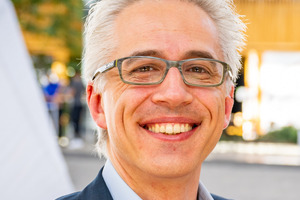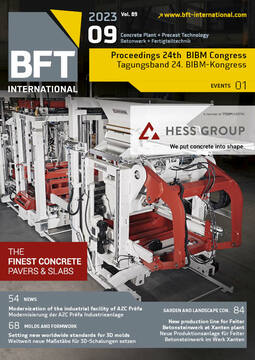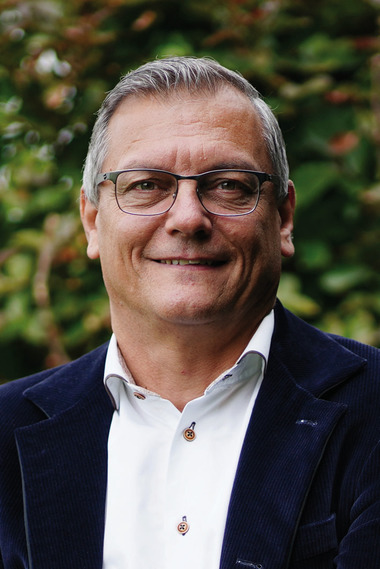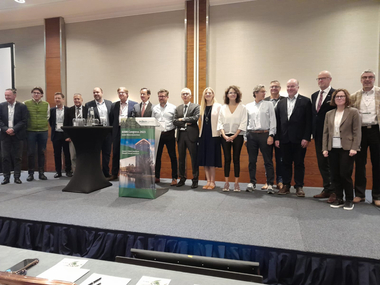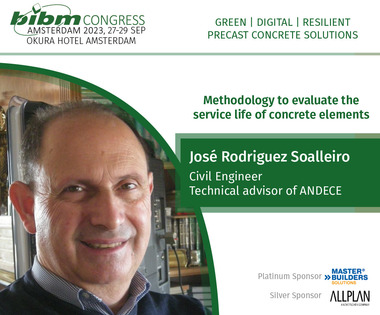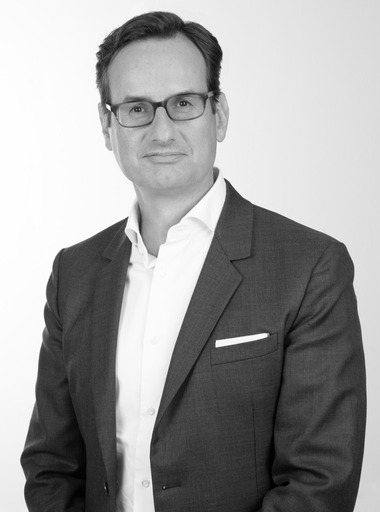Forewords BIBM Congress
Welcome to the BIBM Congress 2023!
The BIBM Congress 2023, scheduled in Amsterdam from 27 to 29 September, is approaching with great strides.
This is the 7th BIBM Congress I am attending and that I help organising since I joined the association in 2004. I am still very excited about it because each event is unique and brings with it memories of amazing people, grateful ideas and amazing souvenirs.
Despite being mainly a local industry, the precast sector is confronted with the European and global challenges linked to the transformation of the built environment. Simplifying a bit, one can say that 2000 was the decade of energy efficiency and 2010 the one of sustainability; 2020 is now the decade of decarbonisation: all other challenges come to a second stage if a sector does not have a good strategy on tackling climate change.
Pushed by the pandemic crisis, recent years also saw the speeding up of enabling activities (digitalisation) and the increased needs to tackle the challenges of climate change adaptation (resilience). All these topics will be addressed by high level speakers with the precast sector in mind, under the motto “Green | Digital | Resilient | Precast Concrete Solutions”.
Whether you are mainly interested in long term developments or in actual solutions, the Congress is providing you with both in exciting parallel sessions. If you want to be part of this stimulating event, the place-to-be in September is Amsterdam!
Alessio Rimoldi, September 2023, Brussels
Green | Digital | Resilient | Precast Concrete Solutions
In recent years, the construction sector has witnessed a paradigm shift towards sustainable practices, driven by a growing awareness of the environmental impact of traditional construction methods. The European Union aims to accelerate this transition by fostering a holistic approach that integrates green building techniques, digital innovation, and resilience in construction projects across Member States. The European Green Deal, approved in 2020, is the EU’s new growth strategy, aiming to transform the EU into a more prosperous society, with a resource-efficient and competitive, net zero economy. Our industry must respond to the upcoming environmental and economic challenges by providing more sustainable and affordable buildings, and special attention must be given to modern and green solutions for the built environment.
Since the announcement of the Green Deal, a range of European initiatives set the scene for the transformation of the construction ecosystem: the New Circular Economy Action Plan, the Fit for 55 Package, the Renovation Wave, the Energy Performance of Buildings Directive, the Construction Products Regulation, the EU Industrial Strategy, the New European Bauhaus, Construction Transition Pathway, and so on. To accelerate the effort for more sustainable construction ecosystem, the Commission created High Level Construction Forum as a valuable platform to collaborate on a wide range of topics of relevance to the sector and for identifying the pathway for a green, digital and resilient transition. That is why the focus for this year’s BIBM Congress will be on “Green | Digital | Resilient | Precast Concrete Solutions” to showcase not only the sustainable advantages of precast concrete, but also the engagement of the industry to provide more sustainable, circular and decarbonised solutions for the built environment.
Green
Green construction refers to the practice of designing, constructing, and operating buildings and infrastructure in an environmentally responsible and resource-efficient manner. The goal of green construction is to minimize the negative impact on the environment and maximize the use of sustainable materials and energy-efficient technologies. In the “Green” session of the Congress, you can attend lectures on the development of CO2neutral binders, a methodology to evaluate the service life of concrete, or the efforts to reduce CO2 across the concrete value chain.
Digital
Digitalisation is another critical aspect of the construction ecosystem. Digital technologies have a huge potential of driving sustainable and efficient construction processes. From Building Information Modeling (BIM) to Internet of Things (IoT) sensors and Artificial Intelligence (AI), digital tools enable real-time data collection, analysis, and optimisation. This will lead to improved energy efficiency, streamlined project management, and enhanced collaboration across stakeholders. The topics of the “Digital” session include: precast BIM objects library, integrating BIM from beginning to the end, and the opportunities and challenges of digitalisation from an engineering perspective.
Resilient
The EU seeks to secure its buildings and infrastructure against the growing risk of natural disasters and extreme weather events. Resilient construction practices, such as reinforced structures, flood-resistant designs, and disaster response planning, are essential to ensure the longevity and safety of built environments. Precast concrete, with its durability and fire safe properties, provides an excellent solution to these challenges. In the “Resilient” section we will discuss precast solutions for flood management, fire protection and the capacity of precast for carrying unexpected loads of seismic instability.
By integrating these three pillars, we can envision a precast concrete sector that embodies sustainability, harnesses the power of digital innovation, and withstands the challenges of an increasingly unpredictable world. The green, digital and resilient construction ecosystem is poised to revolutionize the way buildings and infrastructure are conceived, designed, constructed, and maintained, setting a new standard for the global construction industry.
(Magdalena Herbik, Ebru Akgün)
BIBM
Federation of the European Precast Concrete Industry
Rue d'Arlon 55 (6th floor)
1040 Brussels/Belgium
+ 32 2 588 06 49

